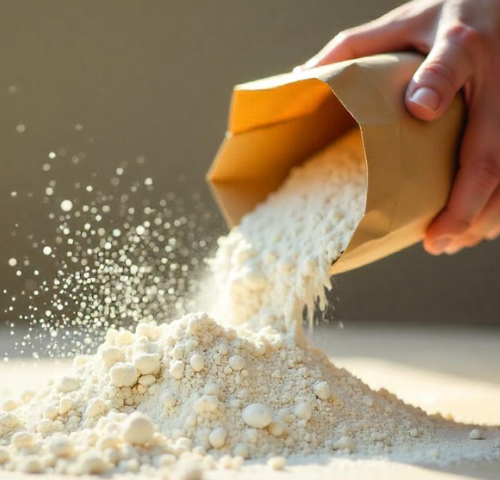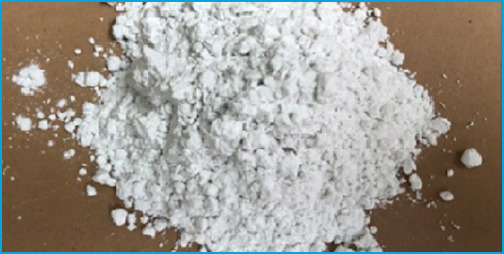
Effective Mold Control Strategies You Can Implement Today
September 26, 2024
Harnessing the Power of Diatomaceous Earth: Effective Application Methods
September 26, 2024Diatomaceous Earth, also known as DE, is a sedimentary rock that has been crushed into a fine powder, which comes from the fossilized remains of diatoms, which are a form of algae. DE is a versatile product since it can be used in pest control, gardening, food storage and also in cosmetics such as skin care products. But for those who are involved in organic farming and gardening, one of the biggest concerns can be if it is safe for the earthworms that are essential for the soil.It mostly operates by acting as a friction agent and a diuretic.
The Importance of Earthworms
Earthworms are very important in the maintenance of soil health. They open up the soil, allowing water to get through and roots to penetrate through it. Thus, they are involved in the decomposition of organic matter which helps in the formation of humus, a nutrient-rich compound that improves the quality of soil. Their activity enhances the microbial activity in the soil, improves soil structure, and enhances plant growth. This means that for gardeners and farmers who have the desire of maintaining healthy and productive soils then they have to protect the earthworms.
Understanding this Product
It works primarily through its abrasive and drying effects. Its microscopic particles are sharp-edged and can pierce the exoskeletons of insects like ants, fleas, mites, and beetles. This leads to dehydration and death in many garden pests. Unlike chemical pesticides, DE does not poison its targets; rather, it physically damages them.
The Importance of Earthworms
Earthworms play a crucial role in maintaining soil health. They aerate the soil, improving water infiltration and root penetration. By breaking down organic matter, they contribute to the formation of humus, a nutrient-rich substance that enhances soil fertility. Their activity stimulates microbial activity, promotes soil structure, and supports plant growth. For gardeners and farmers who want to keep their soil healthy and fertile, protecting earthworms is essential.
- Direct Contact with DE : DE’s sharp, abrasive particles can harm soft-bodied creatures like slugs and some insects, which raises concerns about earthworms, whose skin is moist and sensitive. However, earthworms live beneath the surface of the soil, while DE is generally applied to the soil's top layer to target pests that dwell above ground or just beneath the surface. Earthworms tend to burrow deeper and rarely come into direct contact with the DE spread on the surface.
- Moisture Mitigates DE's Effects :Diatomaceous is most effective when dry. In moist environments, the sharp edges of DE particles become less effective, as they absorb water and clump together. Earthworms thrive in moist soil, which helps reduce the potential harm of DE. Therefore, in a damp garden environment where earthworms are active, DE is less likely to affect them. Its drying and cutting effects diminish significantly in such conditions.
- DE Application Methods : The way it is applied in the garden can further minimize risks to earthworms. For instance, dusting DE lightly on plant leaves or directly on pests (like aphids or mites) will target specific insects without disrupting soil-dwelling organisms. Another method is applying DE only to the topmost layer of soil, far from the deeper layers where earthworms typically burrow and feed.
- Use DE Sparingly :It is only necessary to use the required amount of DE to manage the pest problem. The writers, however, note that overuse of DE could lead to depletion of moisture in the soil and this may negatively influence earthworms indirectly.
- Targeted Applications : Consequently, apply Focus DE only to those parts of the plant where pests are most likely to be found, such as near the stem or on affected leaves. Do not use it liberally on the soil especially where there are worms in the soil.
- Maintain Soil Moisture : Water the soil frequently, particularly in those parts of the plant that have been treated with DE. This brings the sharpness of DE particles down, thus it makes them less dangerous to the earthworms.
- Use Food-Grade DE : You should consider using food grade de in your garden since the other grade may be dangerous for both plants and animals. Pool grade DE that has been chemically treated for use in swimming pool filters is not safe for use in gardens or for any biological life.It can be very effective in organic gardening particularly for those who want to stay away from synthetic pesticides. occurring sedimentary rock that is ground into a fine powder.
Understanding this Product
It works primarily through its abrasive and drying effects. Its microscopic particles are sharp-edged and can pierce the exoskeletons of insects like ants, fleas, mites, and beetles. This leads to dehydration and death in many garden pests. Unlike chemical pesticides, DE does not poison its targets; rather, it physically damages them.
The Importance of Earthworms
Earthworms play a crucial role in maintaining soil health. They aerate the soil, improving water infiltration and root penetration. By breaking down organic matter, they contribute to the formation of humus, a nutrient-rich substance that enhances soil fertility. Their activity stimulates microbial activity, promotes soil structure, and supports plant growth. For gardeners and farmers who want to keep their soil healthy and fertile, protecting earthworms is essential.
- DE Application Methods :The way it is applied in the garden can further minimize risks to earthworms. For instance, dusting DE lightly on plant leaves or directly on pests (like aphids or mites) will target specific insects without disrupting soil-dwelling organisms. Another method is applying DE only to the topmost layer of soil, far from the deeper layers where earthworms typically burrow and feed.
- Use DE Sparingly :Apply only the amount of DE needed to control pest infestations. Overuse of DE can dry out the soil, which may harm earthworms indirectly.
- Targeted Applications : Focus DE applications on areas where pests are active, such as around plant stems or on infested leaves. Avoid widespread application over the soil, especially where earthworms are likely to be present.
- Maintain Soil Moisture : Keep the soil well-watered, especially in areas where DE has been applied. This reduces the sharpness of DE particles, making them less harmful to earthworms.
- Use Food-Grade DE : In your garden, opt for food-grade DE, which is less harmful to both plants and animals. Pool-grade DE, which is treated with chemicals for use in swimming pool filters, is not safe for gardens or any biological organisms.
Conclusion
It can be a useful tool in organic gardening, especially for those looking to avoid synthetic pesticides. Nonetheless, DE has the capability to endanger soft-bodied insects, however on earthworms, it is not detrimental if well applied. As for the wet soil and correct usage, earthworms should not be harmed much. In this way, Seema Minerals & Metals urges gardeners and farmers to use DE appropriately and in a way that will not harm beneficial organisms such as worms.



